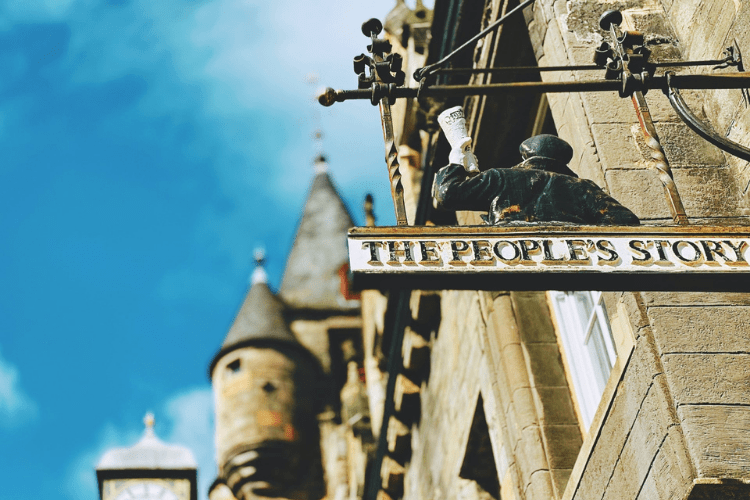As humanity grapples with life in a pandemic-plagued world, the tourism industry continues to find its footing in the so-called “post-pandemic” era.
Destinations are desperate to attract visitors while juggling ever-changing border closures and COVID-19 restrictions. Tour companies are adjusting itineraries, rehiring staff, and sorting out supply chain problems. Every travel professional and company — from travel agents to OTAs — is trying to get back to business with an eye toward the climate crisis and sustainability with few financial resources to address any of these things.
Facing all of these challenges, the last thing anyone might be considering is whether they’re executing an ethical communications strategy.
It’s time to give that consideration the attention it deserves.
What, Exactly, is Responsible Storytelling?
Responsible storytelling seeks to create connection, tap into emotions, surface shared values, reach the right people, and convey meaning while avoiding harm to people, places, and the planet.
In tourism, we use communication from the very early stages of the customer journey until travelers return home from their trips. Telling stories, we must be mindful of the words and images we choose, our personal biases and perspectives, what we emphasize or suppress, and whose voices are amplified. These stories are integrated into social media posts, client communications, itinerary structures, and face-to-face conversations.
In short, storytelling is built into nearly every aspect of the tourism industry.
It is one of the most powerful tools you hold to connect with people and encourage them to engage meaningfully and appropriately with their travel experiences and after returning home. Yet, this tool comes with incredible responsibility, so it needs to be used with great care.
Adopting responsible storytelling practices requires asking questions like:
- Who is centered in this story?
- Are we empowering storytellers, or are we exploiting them?
- Have we established appropriate traveler expectations?
- Do we appropriately navigate power dynamics?
- Does this story perpetuate harmful stereotypes?
- Have we flattened a complex place into a marketable destination?
When those working in the tourism industry don’t take the time to consider these questions, there’s a high likelihood that they’ll continue to gravitate toward harmful communications practices.
Why Responsible Storytelling Matters
The truth is that responsible storytelling runs counter to many companies’ and destinations’ ambitions. While they might publicly state — and even think — they are committed to inclusive and ethical messaging, it’s not actually a foundational part of their ethos. In fact, many travel brands continue to profit off of ambiguous messaging, use colonial imagery and narratives, exploit people and their cultures, co-opt people’s stories, and establish unequal power dynamics with their storytelling.
The way tourism has operated in the past — and the way experiences have been framed for travelers — has been profitable. It has benefited the tourism industry and those working in it. And it has been held in place by harmful storytelling practices.
It’s also hard. It takes time and energy to build partnerships and relationships. It requires revisiting brand messaging and rethinking marketing strategies. It forces people to change the way they approach something that has become routine. In the tourism industry, which has a lot of moving parts and complicated supply chains, taking the time to critically consider how to communicate about complexity is often low on the priority list.
Responsible storytelling takes effort, but it’s also the right thing to do. As we look toward the future of tourism, it’s also essential. Responsible storytelling is a foundational building block that can help guide business operations while also:
- Offering an incentive for ethical practices through radical transparency.
- Attracting the right travelers and establishing appropriate boundaries and expectations.
- Encouraging people to consider their perspective and place in the world.
- Supporting sustainability efforts by more accurately depicting reality and keeping money in local communities.
- Giving local people the chance to tell their own unfiltered stories.
- Addressing the climate crisis.
- Creating unique selling points that set specific operators, service providers, and destinations apart from the mainstream crowd.
In other words, responsible storytelling is good for travel businesses, local communities, and the tourism industry as a whole — a win-win-win proposition. Yet, there are signs that we’re eager to adopt the same bad habits that prioritize the bottom over all else and center travelers to the detriment of people and their homes — I’m looking at you, Tourism Fiji, Boracay Island, cruise ships, and ghost flights.
As the tourism industry gingerly picks back up, there have been rumblings of getting back to business in a way that is more sustainable, equitable, inclusive, and healthier. If the tourism industry is serious about building a better business model, it must commit to responsible storytelling to support these efforts as well.



